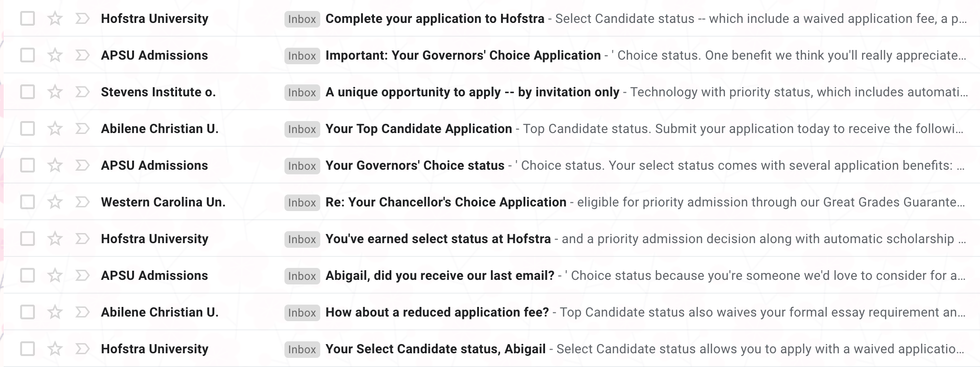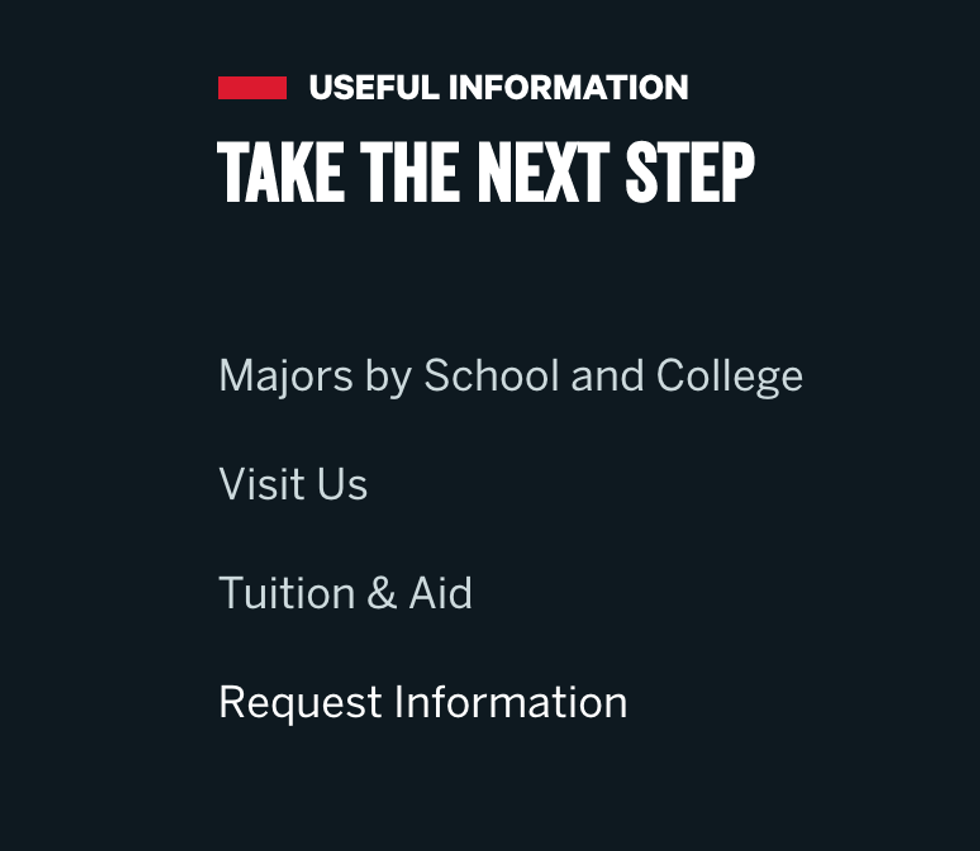College application season is in full throttle, and there are plenty of things that I prepared for and have taken me completely by surprise. Although everyone's college application experience is different (levels of preparedness, amount of colleges applying to, financial situations and more), I have compiled a list of things I wish I was aware of before college season started.
1. Senior year is not as laidback as everyone makes it out to be.

If you are in high school, chances are high that one of your peers has told you that "senior year is a joke" or "senior year is the easiest year you'll have." Do not listen to them. Senior year is application year, so seniors have to manage both schoolwork and application work simultaneously. Although it would be nice to have a schedule completely filled with easy classes, all students are forced to tell colleges what their senior year classes are AND turn in a mid year report and final report; colleges want to see that their future students are still continuing to challenge themselves throughout their entire high school career. So if you have been taking all AP classes in junior year, feel free to dial it down, but I would not recommend taking all easier classes and no APs.
2. Your inbox will be flooded with college emails.

My current inbox.
As a high school student, almost everyone will take a standardized test of some sort, whether it be the SAT, ACT or others. On these tests, there is an option to put down your email so that potential colleges can reach you. In reality, putting down your email in this section means that you, along with thousands of other students, are put on a college's list of student information emails. Although this may sound good, random colleges around the nation will email you daily. On average, I receive about 15 emails from different colleges in a day that I have no interest in visiting (I actually got one while typing this). These emails lead me into my next point...
3. A waived application fee does not mean a college is interested.

Another picture of my inbox.
I have received countless emails claiming that a college has waived their application fee for me to apply because I am a "priority applicant." In reality, colleges are attempting to get more applicants in their pools so that their acceptance rates can be lower and therefore seen as more competitive. Don't fall into the trap; college applications take too much time and effort to complete just to apply to a college that does not interest you.
4. Avoid the dreaded "Tuft's Syndrome."
Tuft's Syndrome is described as a "school that rejects top applicants because it realizes top applicants are unlikely to enroll." In other words, if you have Harvard-worthy grades and apply to a school with a much lower profile, you might get rejected. Although technically perfectly qualified to enroll in a college, a college's main goal is to get as many enrolled students as possible; colleges do not want to be a backup school.
5. Demonstrate interest (especially to target and likely schools).

Find your schools are request information.
To expand on the point before, colleges want to know that you are seriously considering them as a school choice and do not want to be a backup. To avoid Tuft's Syndrome, show your interest. You can do this by requesting information, attending webinars hosted by the school, taking a tour if you are financially able and keeping in contact with your regional counselor.
6. There are tons of essays you will have to write.
When you think of college applications, most people are aware that they will have to write an essay about themselves. What I did not know was that most colleges will require one or more supplemental essay along with the main one. If you are applying to ten schools, you may end up having to write the main college essay (if you use the Common Application or Coalition) as well as two per school you apply to. This adds up to 21 essays, more or less depending on the schools.
7. Give yourself plenty of time to write.
Filling out your information is the easy part; it's the essays that are the time-consumers. If I could change anything about my college application experience, I would have written at least half of my essays over the summer. I wrote my main essay over the summer, but knocking out some of the tedious supplemental essays would have been ideal.
8. Applications are a huge investment.
Perhaps the most surprising part of college application season has been the cost of everything. Applications themselves cost anywhere from $50 to $80, standardized test scores cost around $12 per school just to confirm your score and college counselors and test tutors cost money as well. This goes to show you that you should only apply to schools that you are actually considering, because there is not point in wasting hundreds of dollars on schools you don't care about.
9. Everyone is in the same boat as you.

College applications are incredibly stressful and can often times make you feel anxious and unprepared. At times like these, always remember that your graduating class around the world feels the exact same way as you. In all honesty, there is no one that 100 percent prepared for everything applications throw at them, and you are doing a wonderful job if you are managing school on top of your applications. Stay happy, stay healthy and best of luck on all things college-related!











